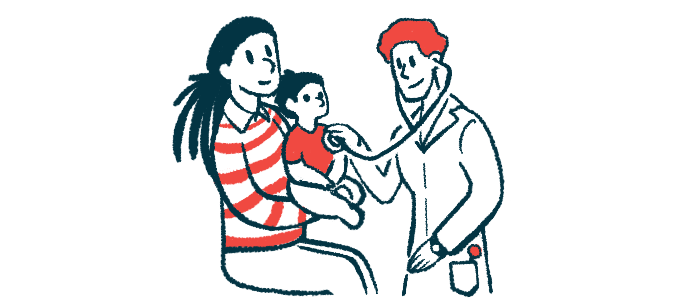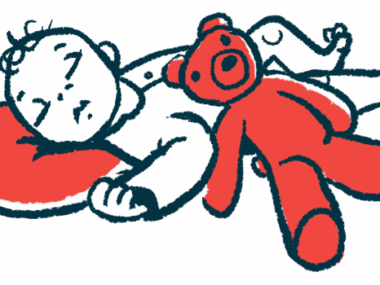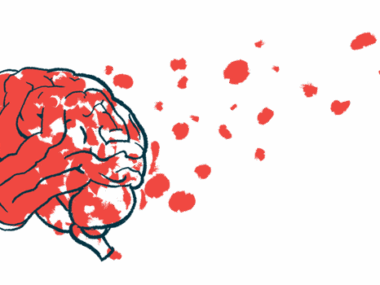Growth Hormone Treatment Shows Benefits in PWS Children in Study
Jintropin found to improve cognition, ease motor function decline
Written by |

Early treatment with Jintropin, a form of human growth hormone, was associated with improvements in cognition and appeared to slow the decline in motor function among children with Prader-Willi syndrome (PWS), a new study reports.
“The present findings of this study add to the growing evidence that [human growth hormone] administration in infants and young children with PWS is well tolerated and effective, providing benefits that extend beyond physical growth when initiated early,” the researchers wrote.
“Initiation of treatment at early infancy (before age nine months) yielded better mental outcomes than those who started treatment later,” they added.
The study, “Early recombinant human growth hormone treatment improves mental development and alleviates deterioration of motor function in infants and young children with Prader–Willi syndrome,” was published in the World Journal of Pediatrics. The work was funded by GeneScience Pharmaceuticals, which sells Jintropin.
Greater benefits seen with early treatment: researchers
Human growth hormone, or hGH, is a signaling molecule that, as its name implies, helps to coordinate growth in early development. Children with PWS characteristically have too-low levels of HGH.
Treatment with forms of hGH such as Jintropin is recommended for PWS children, and has been shown to improve height and body composition outcomes. However, the effect of human growth hormone treatment on cognitive and motor development is less well-studied.
To learn more, a team led by scientists at the Children’s Hospital of Fudan University, in China, conducted a Phase 3 clinical trial (NCT03554031). It involved 35 children with PWS treated with Jintropin for one year. Just over half of the children were younger than 9 months of age upon entering the trial.
Jintropin was administered daily via injection under the skin (subcutaneously). The dose was 0.5 mg per square meter (mg/m2) for the first four weeks, and 1 mg/m2 thereafter.
Motor function was assessed before and after the year-long trial using standard measures such as the total motor quotient (TMQ) and gross motor quotient (GMQ).
Across these measures, scores tended to decrease during the trial’s course and showed a negative correlation with age. In other words, even with Jintropin treatment, over time “motor scores declined and the gap when compared with normal children widened as age increased,” the researchers wrote.
However, analyses showed that the rate of motor function decline was slower while patients were on Jintropin compared with before treatment.
Scores on the Chinese version of the Griffiths Development Scales (GDC-C) — a collection of measures that assess development across several domains, including motor function, language, and cognitive tests — overall showed statistically significant improvements after one year on Jintropin treatment.
The present findings … add to the growing evidence that [human growth hormone] administration in infants and young children with PWS is well tolerated and effective, providing benefits that extend beyond physical growth when initiated early.
A significant improvement also was noted in the stationary subtest score of the Peabody Developmental Motor Scales, an assessment of motor function for children, although significant declines were found in the locomotion and visual–motor integration scores.
Statistical analyses showed that the effect on developmental outcomes was generally more pronounced among children who had started treatment before the age of 9 months, compared with those for whom treatment was initiated later.
“Mental development assessed by the GDS-C showed significant improvement … after treatment especially in subjects aged [younger than] 9 months,” the researchers wrote.
In line with previous studies, results also indicated that hGH treatment led to improvements in measures of height and body composition.
“Overall, [hGH] treatment restored physical growth, and the growth-promoting effect seemed to be more obvious among those with a more severe growth deficit at baseline or who started treatment early,” the researchers wrote.
Jintropin treatment was generally well-tolerated in this study. Six of the children experienced side effects deemed related to the treatment, and all of these were judged mild to moderate in severity. One participant who developed sleep apnea (when a person briefly stops breathing while asleep) withdrew from the study.
“The majority of the [side effects] in this study were mild to moderate in severity and all adverse drug reactions did not require further intervention, suggesting that the potential benefits of [Jintropin] outweigh its risks in infants and young children with PWS,” the researchers wrote.
The team noted that, at the time the study was initiated, no form of hGH was approved to treat PWS in China. The results of this study “provide more evidence to guide the clinical practice of [hGH] therapy in Chinese PWS patients,” they concluded.






